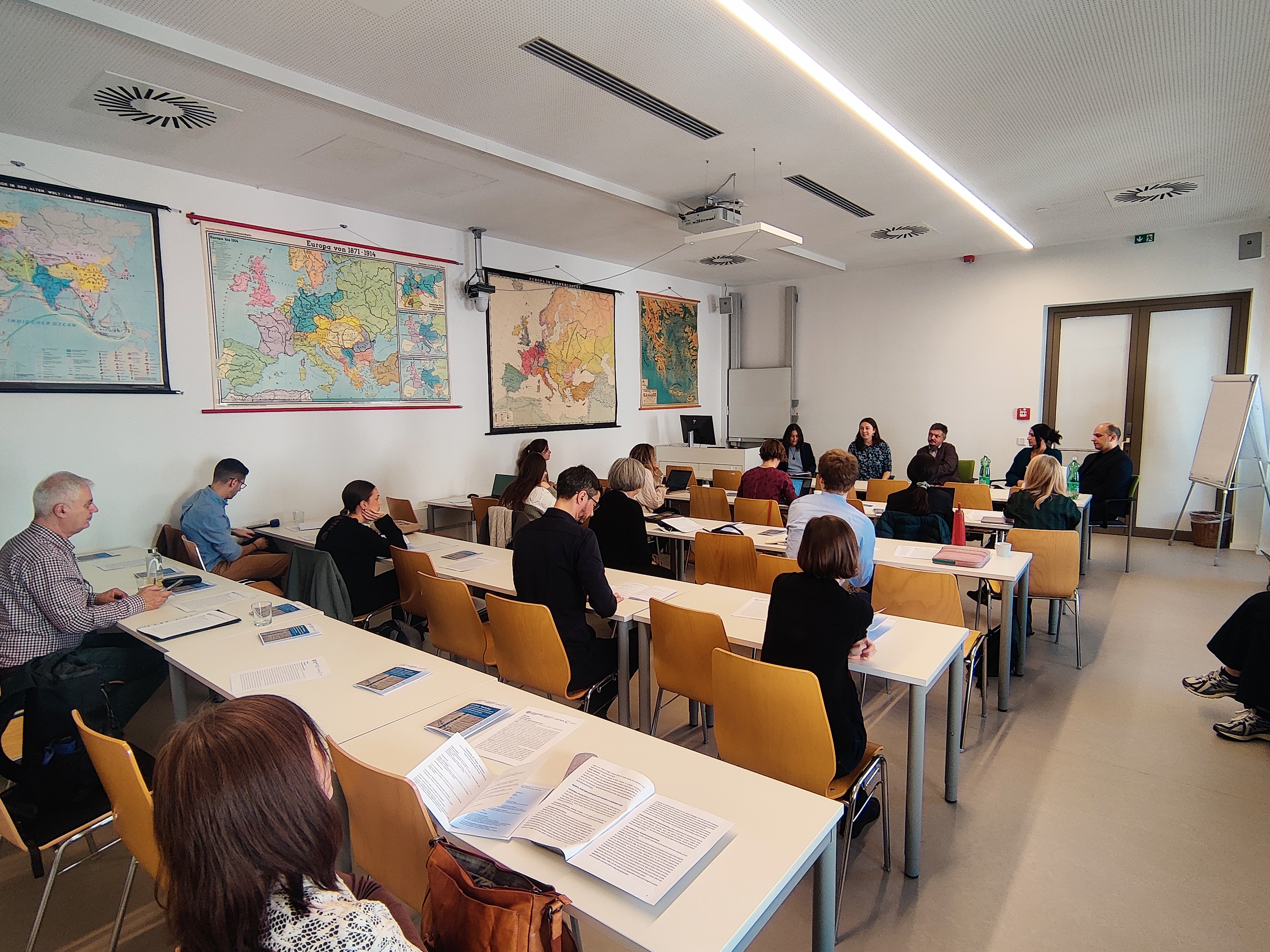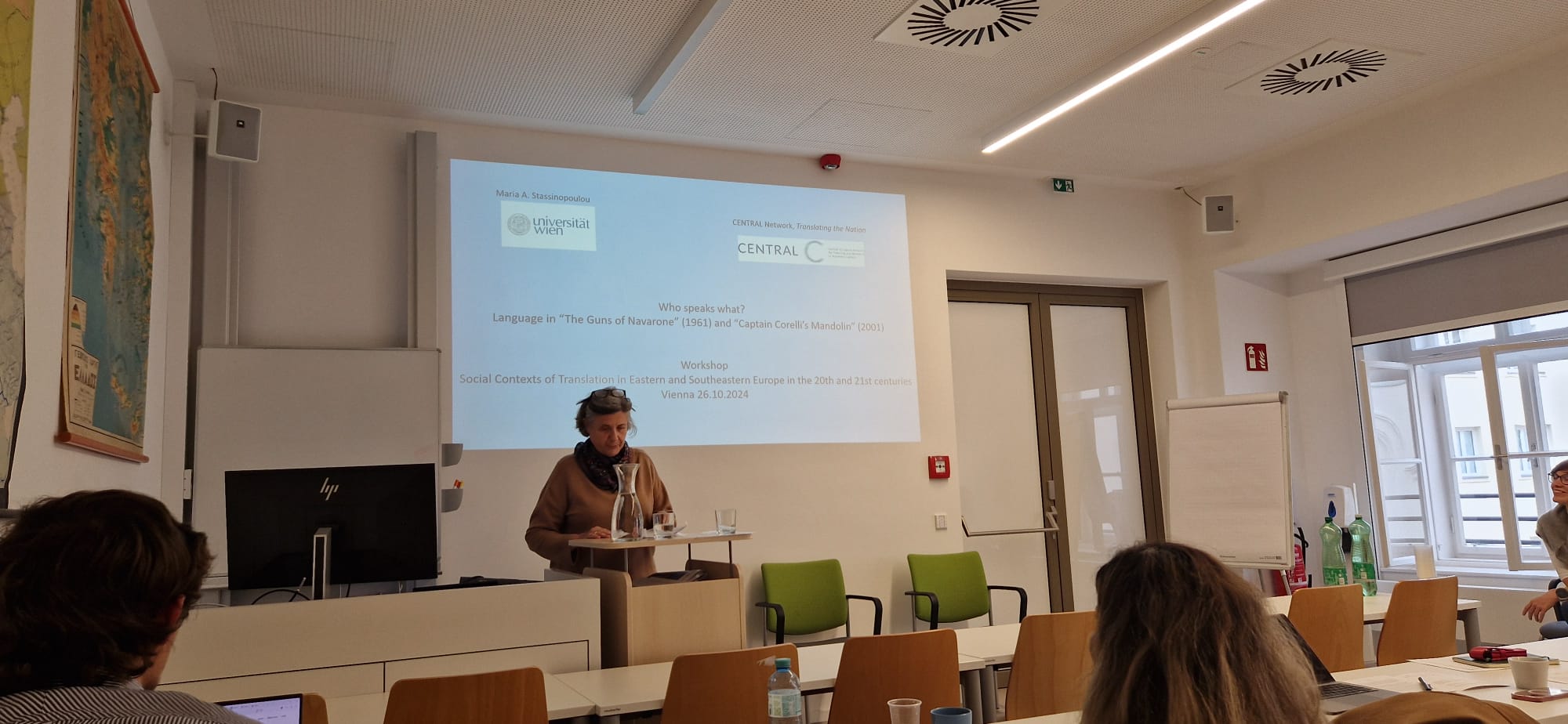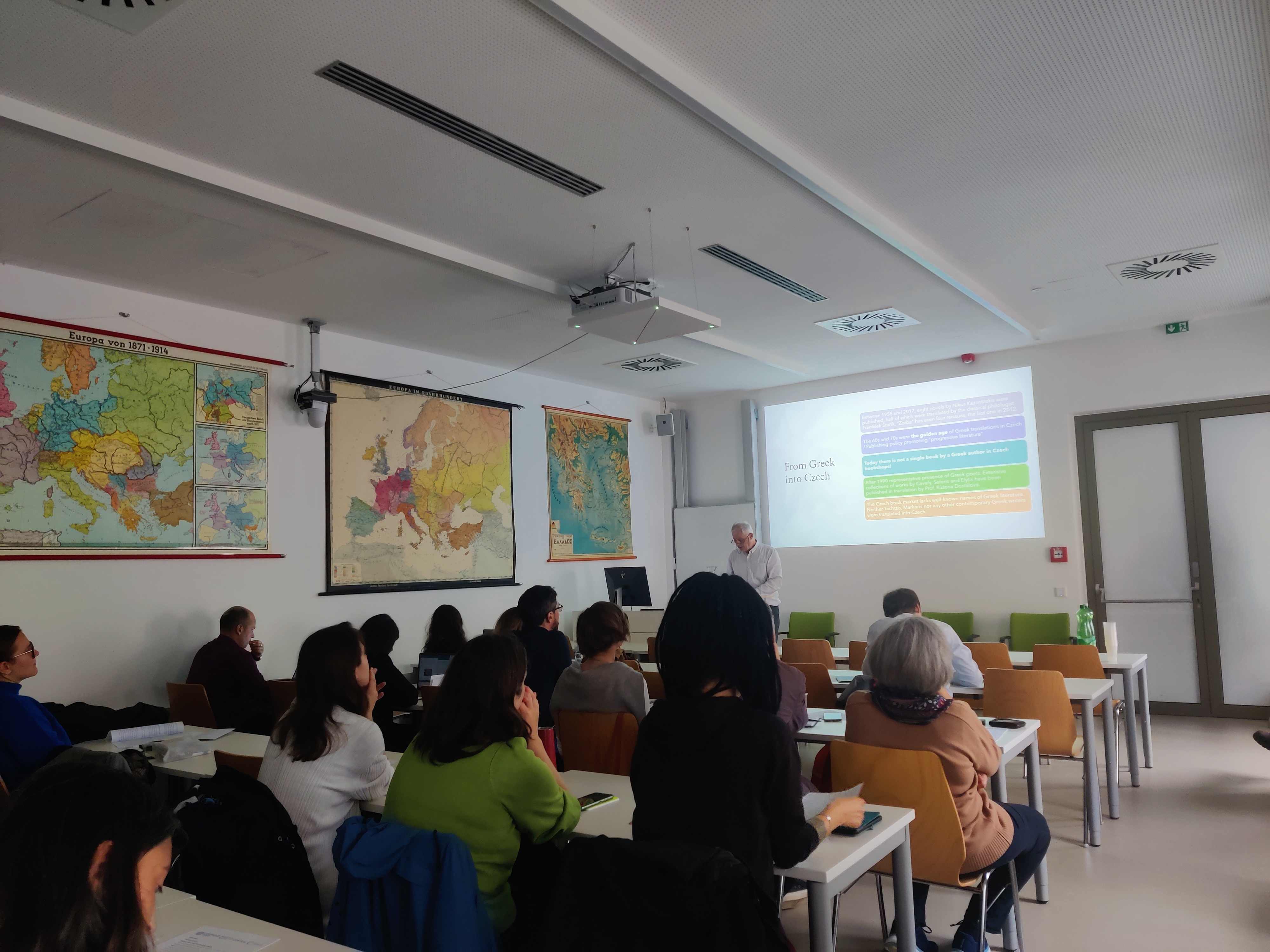CENTRAL Workshop
On October 25th and 26th, the inaugural CENTRAL Network workshop took place in the Lecture Room of the Institute for Byzantine and Modern Greek Studies. Titled “Social Contexts of Translation,” the workshop provided scholars and students with an invaluable opportunity to present and discuss their research and experiences related to translation.
The workshop leaders included Prof. Dr. Maria Stassinopoulou from the University of Vienna, Dr. Przemysław Kordos from the University of Warsaw, Dr. Konstantinos Tsivos from Charles University in Prague, and Dr. Niovi Zampouka from Humboldt University of Berlin. These leaders successfully encouraged students from their respective institutions to participate, creating a dynamic multilingual and multicultural hub for idea exchange.
Professor Susanne Frank from Humboldt University of Berlin delivered the keynote lecture, titled “Translation: Positioning National Literatures in the Soviet and – via Russian – Global Contexts: Bringing the World to National Literatures.”
The workshop featured four stimulating sessions, each exploring diverse research fields within translation studies and showcasing a range of compelling presentations. Session A, titled “In-Between Places,” focused on the translation and reception of modern Greek literature in diverse cultures, specifically Calabria, Istanbul, and Armenia. Session B examined post-Cold War perspectives, highlighting the reception of Ukrainian novels in both East Germany (GDR) and West Germany (FRG), as well as two distinct approaches to modern Greek literary translation in post-socialist countries, Croatia and the Czech Republic.
Session C offered a thorough examination of media involved in cultural transfer and translation, analyzing classroom materials, anthologies of modern Greek prose, and their reception in East Germany, Poland, and the Soviet Union. Additionally, this session explored the portrayal of the modern Greek language in popular films, prompting numerous questions regarding stereotypes and cultural representations.
The final session explored the evolving roles of teachers, researchers, and translators, featuring lively discussions on artificial intelligence and the future of translation. Topics included the challenges, limitations, and opportunities in translating historical documents from multiple languages, as well as the impact of artificial intelligence and machine translation on the role of post-editors. This session also examined the importance of translations in teaching modern Greek language and literature, leading to engaging dialogue about the evolving dynamics in translation practice and education.
During the open discussion, participants raised numerous thought-provoking questions concerning culture, stereotypes, politics, and translation, as well as the future of translation work in light of artificial intelligence and the declining popularity of reading. Students from Berlin, Vienna, and Warsaw engaged in a roundtable, addressing these issues and generating further questions about the future of the humanities and modern Greek language studies.



